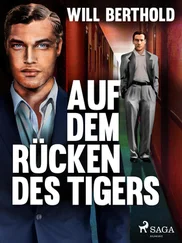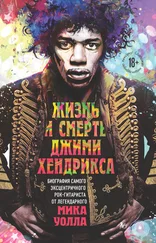Мик Херрон - Real Tigers
Здесь есть возможность читать онлайн «Мик Херрон - Real Tigers» весь текст электронной книги совершенно бесплатно (целиком полную версию без сокращений). В некоторых случаях можно слушать аудио, скачать через торрент в формате fb2 и присутствует краткое содержание. Год выпуска: 2015, Издательство: Soho Press, Жанр: Старинная литература, на английском языке. Описание произведения, (предисловие) а так же отзывы посетителей доступны на портале библиотеки ЛибКат.
- Название:Real Tigers
- Автор:
- Издательство:Soho Press
- Жанр:
- Год:2015
- ISBN:нет данных
- Рейтинг книги:4.5 / 5. Голосов: 2
-
Избранное:Добавить в избранное
- Отзывы:
-
Ваша оценка:
- 100
- 1
- 2
- 3
- 4
- 5
Real Tigers: краткое содержание, описание и аннотация
Предлагаем к чтению аннотацию, описание, краткое содержание или предисловие (зависит от того, что написал сам автор книги «Real Tigers»). Если вы не нашли необходимую информацию о книге — напишите в комментариях, мы постараемся отыскать её.
Real Tigers — читать онлайн бесплатно полную книгу (весь текст) целиком
Ниже представлен текст книги, разбитый по страницам. Система сохранения места последней прочитанной страницы, позволяет с удобством читать онлайн бесплатно книгу «Real Tigers», без необходимости каждый раз заново искать на чём Вы остановились. Поставьте закладку, и сможете в любой момент перейти на страницу, на которой закончили чтение.
Интервал:
Закладка:
Still, let the chips fall. Dame Ingrid didn’t negotiate with politicians.
Unless they had her by the throat.
At the minister’s residence, the front door was opened by a pretty young man with the faintest hint of a lisp. Nobody doubted Judd’s heterosexuality, which was as enthusiastic as it was indiscriminate, but his entourage tended towards the fey—Judd hadn’t dubbed them his camp followers for nothing. It was always possible the quip had occurred to him first, and he’d chosen his retinue accordingly.
“Dame Ingrid,” he said now, as she entered his office.
“Home Secretary.”
“I’ve taken the liberty.”
Which sounded like a bullet-point summary of his Home Office tenure to date, but was in fact a reference to the tea tray on a nearby table.
Following his guide, she sat in an armchair. The room, she noted, remained much as it had done during his predecessor’s ministry, which is to say that not only was it still walnut-panelled, book-lined and Turkish-rugged, but that Judd hadn’t even bothered to have the art changed: some drab nature morts , a few sea battles, and a large and politically obsolete globe. Given Judd’s tendency to leave his stamp on things, Tearney took this as a clue that he didn’t expect to remain here long. Which had been true of his predecessor too, but for a diametrically opposite reason.
“Milk? Sugar?”
She shook her head.
Peter Judd poured, placed cup and saucer on a table by her elbow, and lowered himself into the chair opposite.
He was a bulky man, not fat, but large, and though he had turned fifty the previous year, retained the schoolboy looks and fluffy-haired manner that had endeared him to the British public and made him a staple on the less-challenging end of the TV spectrum: interviews conducted on sofas, by scripted comedians. Through persistence, connections and family wealth, he’d established a brand—“a loose cannon with a floppy fringe and a bicycle”—that set him head and shoulders above the rest of his party, and if the occasional colleague had attempted to lop that head off those shoulders in the interests of political unity, they’d yet to find the axe to do the job. Tearney’s own file on him was long on speculation, short on facts. So clean of cobwebs, in fact, that she was sure he’d airbrushed his past of serious sins as carefully as he arranged his haystack of hair.
He was eyeing her now in a manner that suggested he was about to enjoy what followed.
“So, minister,” she said, never keen on being made to sign her own punishment slips. “What seems to be your problem today?”
“Oh, I have no problems. Only a bagful of solutions awaiting opportunities.”
She pretended not to sigh, or at least, pretended she didn’t want him to notice her trying not to. “So this is social? It’s always a pleasure, Minister, but I am somewhat busy.”
“So I gather. Bit of a rumpus over your way this morning, what?”
“Rumpus” was a favourite PJ-word; one he’d employed to describe a recent tabloid splash about his friendship with a lap dancer. It was also a term he’d used in reference to both 9/11 and the global recession.
“What sort of, ah, rumpus would this be?”
“An incursion.”
He meant the Cartwright business, she realised. Which was unimportant and without consequence, which meant there was something to it she wasn’t yet aware of.
“I’d hardly call it an incursion,” she said. “An off-site agent lost his bearings. The Park can be disorienting.”
“So I recall.”
“Besides, the incident was done and dusted inside twenty minutes. When I left, the young man was being, ah, chided by our head of security.” She sipped again at her tea. “Are you sure such matters are worth your attention? I’d have thought there were weightier issues on your desk.”
Though the question of how he’d become aware of Cartwright’s frolic almost before she had was a matter Dame Ingrid definitely didn’t consider minor.
“I deem few things beneath my attention,” he said, adopting the plummier tones ex–public schoolboys use when bringing words like “deem” into play. “And certainly not those issues which call into question the integrity of our national Security Service.”
“‘Integrity,’” she said. “Really?”
He leaned back in his chair. “More tea?”
“I’m fine.”
“Sure? You don’t mind if—?”
She shook her head.
He refreshed his cup, and stirred the contents slowly, not taking his eyes off her.
“Minister, precisely what is this about?”
“Well, it’s quite simple, Dame Ingrid. Tell me, are you familiar with the term ‘tiger team’?”
Dame Ingrid lowered her teacup.
“Oh dear,” she said.
The taxileft Monteith outside the multistorey car park. It was a drab, soulless building, precisely because of its function: if an architect ever designed a car park the sight of which lifted the heart, civilisation’s job would be done. Monteith made a mental note to drop this aperçu into conversation next time he was with Peter Judd, and walked down the slope into the structure. Even with heat rising from the pavement, the lower storey carried a grave scent of damp earth and mildew. He stepped around an oil patch on the scabbed concrete, and pulled open the heavy door into the stairwell.
A different splash of odours, urine among them. Civilisation’s job was one long uphill battle round here.
He took the stairs two at a time. Into his fifties, he remained proud of his physical condition: barely smoked, and then only good Cuban; never drank port or liqueurs; red wine just three evenings a week (white the rest). If this didn’t precisely add up to a fitness regime, it gave him a head start. Besides, he was a leader, not a foot soldier. When River Cartwright had taken him by the lapels earlier, he’d felt no physical fear precisely because of that difference between them. Cartwright was a pawn, and didn’t know it. Monteith’s place was among the kings, and today’s work would serve to consolidate that.
Pawns don’t take kings. Basic rule of nature.
Donovan was waiting on the top storey, by the van. Another case in point, Monteith thought. Sean Donovan could have been wearing Monteith’s shoes now, near as damn it, if he’d understood the game. But that was the problem with coming up through the ranks—there was a reason the phrase was officer class . It came with breeding, wasn’t something they could drill into you.
None of that showed in his voice when he called out, “Donovan!”
Donovan didn’t respond.
Another oil patch to skip around. The light was better up here; the sides open to the city, technically allowing for airflow. But the midday heat shunted around as if in blocks. Every time you encountered it, it was like walking into a wall.
He resisted the temptation to run a finger around his collar. Appearances: you kept tight hold of them.
“Donovan,” he said again when he was no more than a yard away. “Everything in order?”
“So far.”
When he’d pictured this moment, Sly Monteith realised, he’d imagined it as one of high-fiving celebration—a plan brought to fruition; the pair of them delighted with each other and themselves. But Sean Donovan seemed, if anything, even less inclined than usual to unbend.
It didn’t matter. Monteith didn’t need Donovan’s approbation. The real celebrations would come later.
Because say what you like about Peter Judd, he knew how to mark a job well done.
“A tigerteam,” Ingrid Tearney said.
“A tiger team.”
“I know perfectly well what a tiger team is,” she told him.
That feeling she was getting now was of Judd’s fingers round her throat.
Читать дальшеИнтервал:
Закладка:
Похожие книги на «Real Tigers»
Представляем Вашему вниманию похожие книги на «Real Tigers» списком для выбора. Мы отобрали схожую по названию и смыслу литературу в надежде предоставить читателям больше вариантов отыскать новые, интересные, ещё непрочитанные произведения.
Обсуждение, отзывы о книге «Real Tigers» и просто собственные мнения читателей. Оставьте ваши комментарии, напишите, что Вы думаете о произведении, его смысле или главных героях. Укажите что конкретно понравилось, а что нет, и почему Вы так считаете.


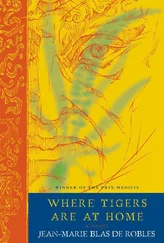

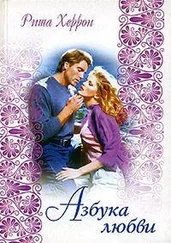
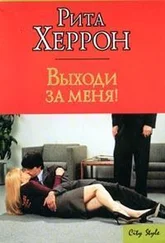
![Мик Уолл - Жизнь и смерть Джими Хендрикса [Биография самого эксцентричного рок-гитариста от легендарного Мика Уолла] [litres]](/books/387909/mik-uoll-zhizn-i-smert-dzhimi-hendriksa-biografiya-samogo-ekscentrichnogo-rok-gitarista-ot-legendarnogo-mika-uolla-litres-thumb.webp)


